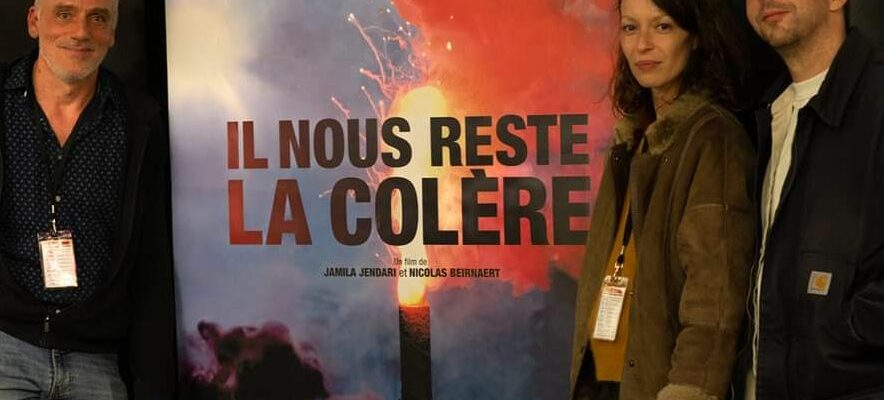In We are left with anger, Jamila Jendari and Nicolas Beirnaert, two directors from Bordeaux, retrace the home stretch of the fight of the “Fords” against the closure of the Blanquefort factory in Gironde, which employed 800 workers. After a preview which sold out at the Utopia in Bordeaux on November 21, Philippe Poutou, one of the protagonists of the film, welcomed the highlighting of “the difficulty of the struggle” by the documentary.
It’s not a thriller film since we already know that the factory has closed, but it shows the many hardships experienced by the hard core of the union team gathered around the former presidential candidate. for the NPA and their pugnacity. The two directors agreed to answer questions from 20 minutes on their project.
Where did the idea for a documentary about “Fords” come from?
Nicolas Beirnaert : The organization of the demonstrations against the Labor Law, which we were following in 2016 with Jamila, was being disrupted and we thought it would be interesting to see what the unions were doing. A friend [Xavier Ridon, l’un des producteurs du film] offered to film the “Fords” leaving for the 24 Hours of Le Mans. We said yes of course, they are local stars in the social movement.
At what pace did you follow his mobilization?
Jamila Jendari : At the beginning, we were filming without knowing that we would make a documentary, the idea came gradually. With the announcement of Ford’s non-investment, we felt a more tangible threat and they were in a more sustained defense. In 2018, the pace is accelerating and there, we go there three times a week: the film rather retraces this period. We were somewhat conditioned by what we knew about films about social struggles and we wondered how we could account for the difficulties, the lack of visibility.
Nicolas Beirnaert: The guys in the factory weren’t moving much but the CGT representatives were hyperactive so we said ok, here are our characters. The documentary focuses on this trade union team which will fight against all odds and on the works councils (WC). We also see demonstrations but we wanted to avoid the usual wrestling folklore.
What is Philippe Poutou’s place in your documentary?
Jamila Jendari : This is the starting point and after we meet a group. He takes it and it is also publicized which allows visibility. He has a central place but we can clearly see that what is important is his link to the whole group, otherwise we would have made a film on Philippe Poutou. His humor makes it possible to counterbalance the difficulty of non-mobilization and all the terrible things that brings.
Nicolas Beirnaert : For the viewer, it’s also a gateway to this union world that we don’t know well.
What were the reactions of your protagonists during the first private screenings?
Jamila Jendari : During those which took place in May and November, none appeared to be disappointed with the way in which they were represented. But, we are filming the most difficult year and it’s complicated to come back to that for some of them. It should also be noted that we cannot show everything, for example the union work in the factory, since we did not have access to the interior of the site, unfortunately.
Was it important for you to contribute to keeping a memory of this struggle?
Nicolas Beirnaert : The factory shone for fifty years in the Bordeaux region, it’s not nothing! It has since been shaved, but at least this film allows us to bear witness to this struggle of the Fords, even if it does not tell the whole story. There is no trace of the first battle, which made it possible to extend the life of the plant by ten years.
Jamila Jendari: It was important to pay tribute to their courage, their intelligence and their creativity when they were in trouble all along. Sometimes we no longer knew if we were documentary filmmakers or solidarity, but there was a necessary distance to keep in order to take a look.
Nicolas Beirnaert and Jamila Jendari: We are also happy that this has sparked debate on union representativeness and the difficulty of mobilizing. We think that we will always need to organize for social struggles, even if we see that trade unionism is in crisis.

